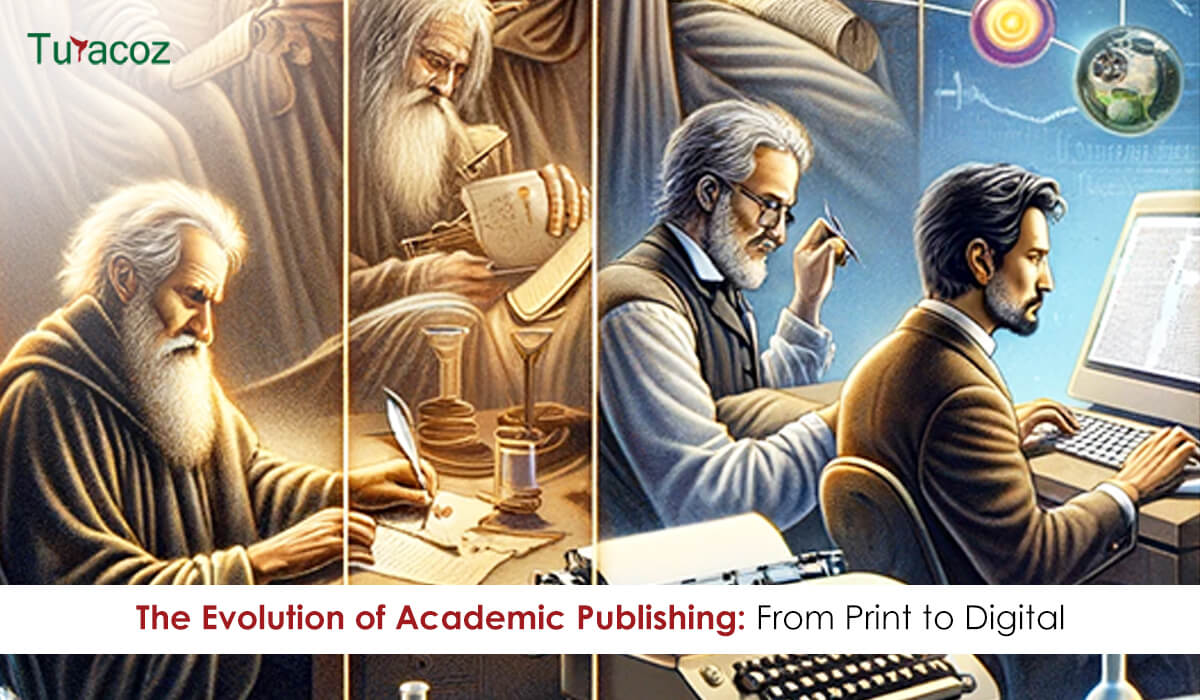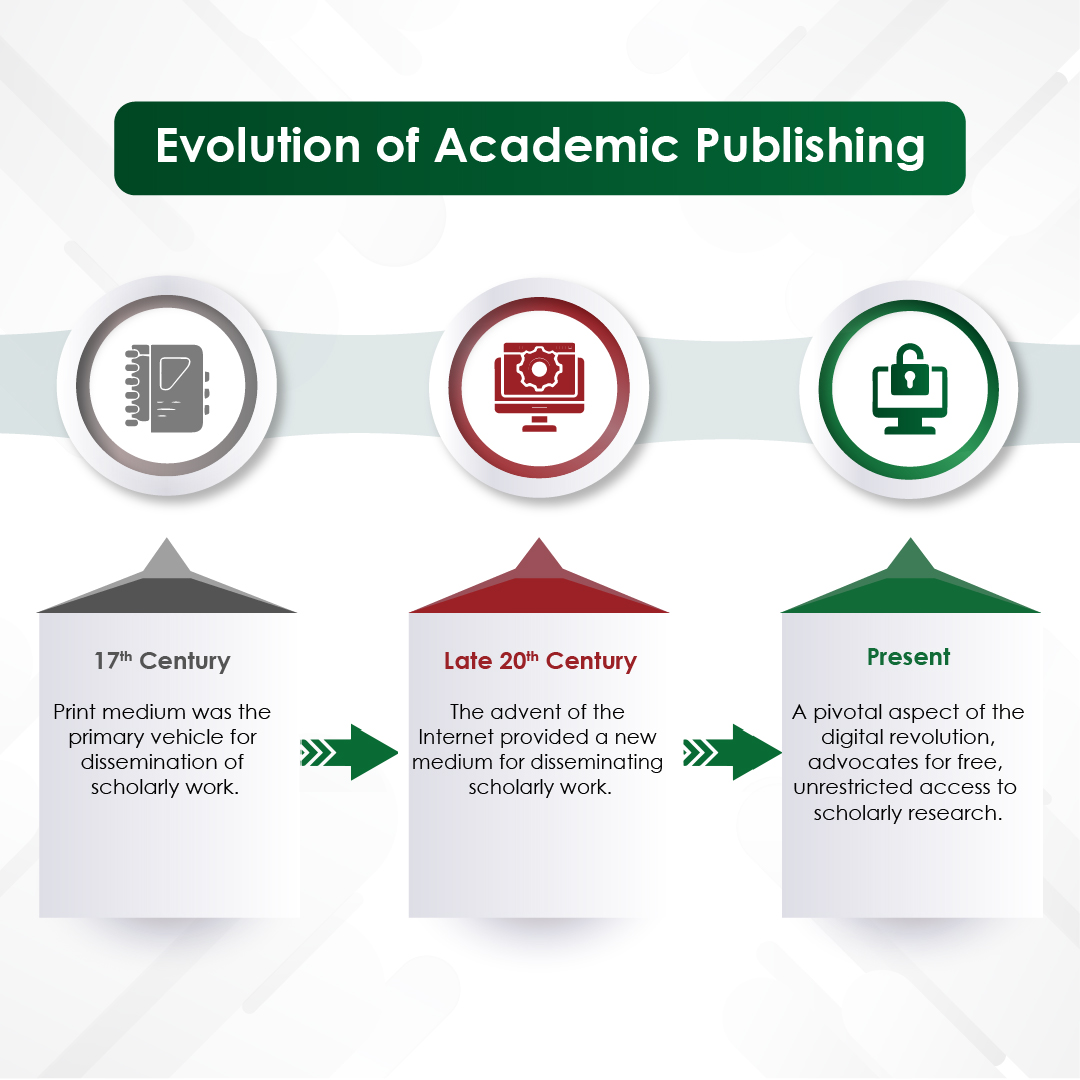
For centuries, the world of academic publishing was dominated by the printed word. Scholarly journals, monographs, and textbooks were carefully typeset, printed on paper, and distributed through a network of publishers, libraries, and bookstores. However, the rise of the Internet and digital technologies has ushered in a seismic shift in the creation, sharing, and preservation of academic knowledge. The transition from traditional print to digital formats has brought significant changes and opportunities for scholarly publishing.
Print journals play a crucial role in shaping the field of academics:

2. Digital Revolution
Emergence of Digital Formats
The seeds of the digital revolution in academic publishing were planted in the late 20th century with the advent of electronic databases and online repositories. Initiatives such as JSTOR and Elsevier’s ScienceDirect have begun digitizing academic journals, making them accessible to researchers and students through institutional subscriptions. This initial foray into digital publishing provided a glimpse into the potential for wider dissemination of scholarly work and more efficient information retrieval.
As the Internet became more ubiquitous and bandwidth increased, publishers started experimenting with online journals and e-books. These early digital formats offered several advantages over their print counterparts, including lower production and distribution costs, faster publication cycles, and the ability to incorporate multimedia elements.
Benefits of Digital Publishing
The shift to digital formats brought a plethora of benefits:
3. Open Access Movement
One of the most significant developments in the digital era of academic publishing is the emergence of the open access (OA) movement. Driven by the belief that scholarly research should be freely available, OA initiatives aim to remove barriers in accessing and sharing academic content.
OA publishing models typically fall into two categories: gold open access, where authors or their institutions pay article processing charges to make their work openly available immediately upon publication, and green open access, where authors self-archive their works in institutional or subject-specific repositories after an embargo period.
Prominent OA publishers like the Public Library of Science (PLOS) and BioMed Central have played a pivotal role in advancing open access, while traditional publishers have also adopted hybrid models that allow authors to make their articles open access upon payment of a fee.
Benefits of Open Access
Challenges in the Digital Era
Despite its numerous benefits, the transition to digital publishing has presented several challenges:
4. Future of Academic Publishing
Integration of Advanced Technologies
The future of academic publishing is poised to integrate advanced technologies and to further enhance the research ecosystem:
5. Enhanced Collaboration and Interdisciplinary Research
Digital platforms facilitate collaboration across geographical and disciplinary boundaries. The future of academic publishing will likely see increased interdisciplinary research, addressing complex global challenges through a holistic approach.
6. Continued Advocacy for Open Access
The push for OA is expected to intensify, driven by advocacy from academic communities, funding agencies, and policymakers. Sustainable OA models that balance accessibility with financial viability are crucial in shaping the future of academic publishing.
The evolution of academic publishing from print to digital has transformed the dissemination and accessibility of scholarly research. While the digital revolution has brought significant benefits, it has also introduced new challenges that require ongoing adaptation and innovation. As technology continues to advance, the academic community must navigate these changes thoughtfully, ensuring that the pursuit of knowledge remains inclusive, credible, and impactful. The future of academic publishing holds immense potential, promising to further democratize access to knowledge and foster a vibrant, interconnected global research community.
At Turacoz Healthcare Solutions, we understand the evolving landscape of academic publishing and are committed to supporting scholars in navigating these changes. Beyond our expertise in journal publication, we offer a comprehensive range of academic services designed to enhance the quality and impact of scholarly work. Our services include book writing, thesis writing, authoring book chapters, and providing tailored support to meet the diverse needs of the researchers. Whether you are crafting a detailed monograph, developing a critical thesis, or contributing to collaborative volumes, Turacoz Healthcare Solutions is your partner with academic excellence. Reach out to us at www.turacoz.com to ensure that your work achieves its full potential in the digital age.